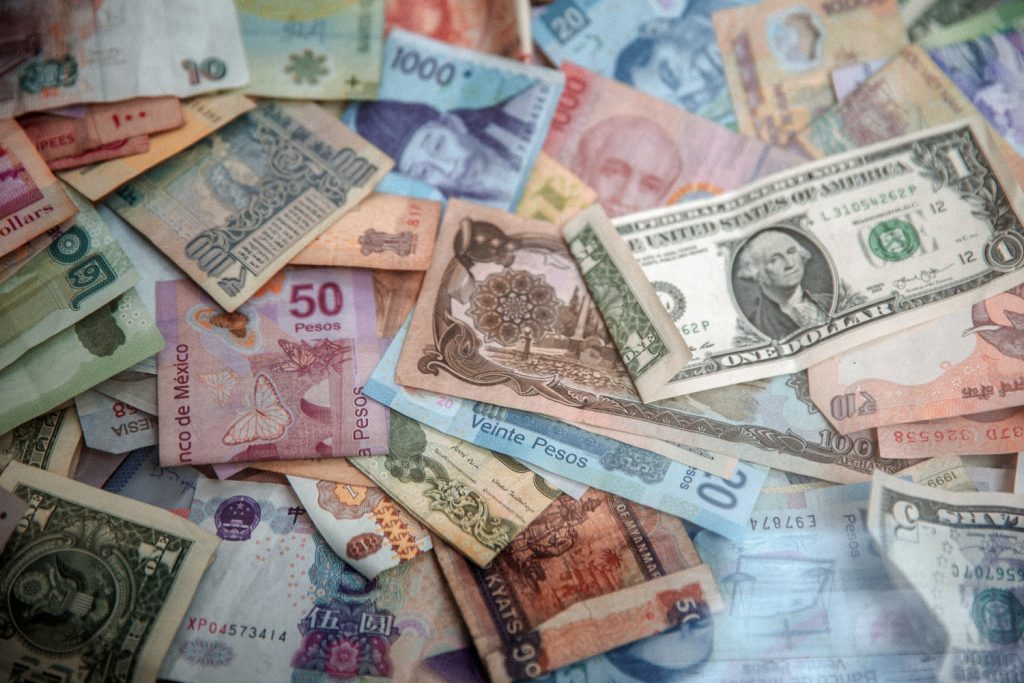Breaking Free From the Money Trap
In an excerpt from this month’s Dharma Talk, meditation teachers Gina LaRoche and Jen Cohen apply the ten paramis as a framework for healing our conceptions around money. The post Breaking Free From the Money Trap appeared first on...

In an excerpt from this month’s Dharma Talk, meditation teachers Gina LaRoche and Jen Cohen apply the ten paramis as a framework for healing our conceptions around money.
By Gina LaRoche and Jen Cohen Jul 22, 2022 Photo by Jason Leung
Photo by Jason LeungThis concept of “navigating the path to awakening around money” first came to me when I was on a meditation retreat at Insight Meditation Society. I had been really struggling with how to live the life of a householder and walk on a path toward awakening. I kept saying to myself and my teacher, “How do I pay the mortgage while also following the Buddhist teachings?” Then the paramis, or perfections, resurfaced as a teaching for me—I had forgotten about them. These are the ten perfections that the Buddha is said to have focused on, in the eons between the time he saw the previous Buddha and the time he himself became Buddha.
— Gina LaRoche
***
The first of the ten paramis is dana. We are asked to donate dana at our Buddhist centers when we’re on retreat. Often our choice to give is held in secret, even if the request is publicly asked.
How are you moved to give, or offer, or honor, in your life? Is it publicly or privately? If it’s public, what drives you to be public about it? If it’s privately, why do you keep things private?
We don’t want our generosity to come from a place of, “Oh, poor you, oh righteous, fabulous, me.” We want to share because we know the interdependent nature of all of life.
The second parami is virtue, which is an interesting word. It’s really about releasing carelessness, and instead offering deep care. We tend to hold a lot of stories about money and how virtuous we are with it or without it, so this parami can be a tough one to embrace.
The third parami is renunciation, which I feel like is really a dirty word in Western society. People often say, “Well, I don’t want to have to give up anything.”
But we might start with just renouncing our stories around money, renouncing the lies we’re holding about money, dropping our secrets about money. We might also choose to renounce debt and being indebted to others.
We want to share because we know the interdependent nature of all of life.
The fourth parami is wisdom—paying attention and knowing what to let go of and what to hold onto. Breaking free of the money trap is about having the wisdom to know what “responsible enough” means.
Energy is the fifth parami. It’s about right effort. We can get stuck in money conversations or even stuck in our own money journey. How can we keep the energy and wisdom flowing towards our commitments, our values?
The next one is patience. When we’re taught about money, we’re taught to start saving when you’re 22 and that if you have patience, you’re going to wake up one day when you’re sixty years old and you’re going to be a millionaire.
But for us, embracing this parami on our journey to awakening is about having the patience to take the next step. It takes a level of patience to arrive at a state of mind where you’re defining your own awakening.
Next is truthfulness. It’s very critical, particularly in our society, to break free from the secrets we have about money and to start telling the truth.
The next parami is determination, or rigor. If you’re going to walk this path, there is a holding and a rigor. A partner or buddy on this journey can be invaluable. It’s in partnership where we can unwind and sort through some of the issues that we don’t quite know how we want to navigate.
Next is appreciative joy, having true joy and appreciation for other people’s success. This is also known as lovingkindness. When your neighbor pays off their car, or buys their first house, the practice is to be joyful and happy for them, which will in turn cultivate joy and happiness for yourself and your own work.
Not only is lovingkindness critical as we navigate this path toward awakening, but so is compassion: having compassion for ourselves where we are and where we’re going, compassion for our experience, compassion for others. This is a place to ask, “Am I giving from a place of pity, the near-enemy of compassion?”
Finally, the last parami is equanimity. Our teacher DaRa Williams says, “Equanimity is when the mind is unperturbed, undisturbed by whatever experience is arising. It has the quality of balance that catches the mind or rests the mind before it falls into extremes. Because once you’re falling, you just have to go with it. Equanimity is a spacious stillness of the mind, a radiant calm that allows us to be present full with all the different changing experiences, which constitutes our lives and our world.” We believe that if we can hold this quality with our relationship to money, this will put us all on the path to awakening.
![]()
Thank you for subscribing to Tricycle! As a nonprofit, we depend on readers like you to keep Buddhist teachings and practices widely available.
This article is only for Subscribers!
Subscribe now to read this article and get immediate access to everything else.
Already a subscriber? Log in.

 MikeTyes
MikeTyes 
































